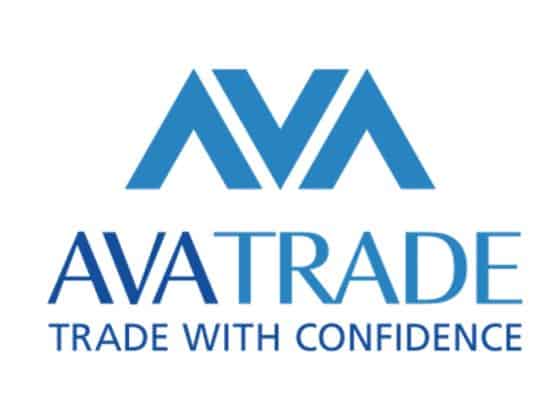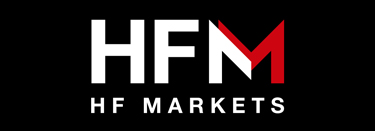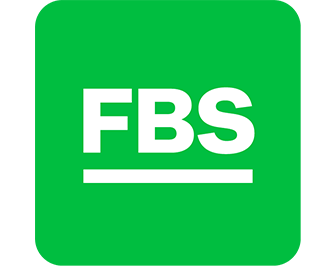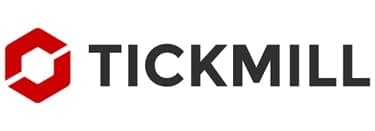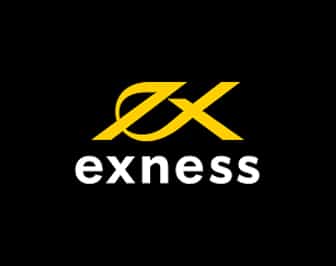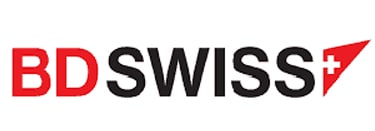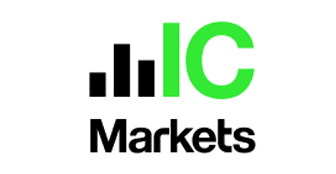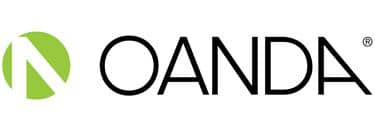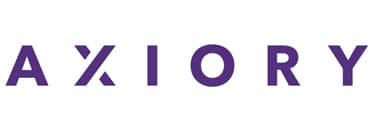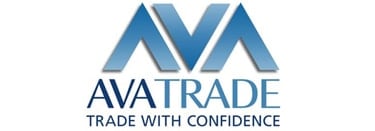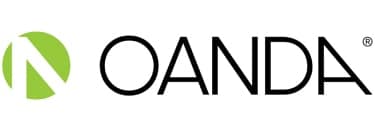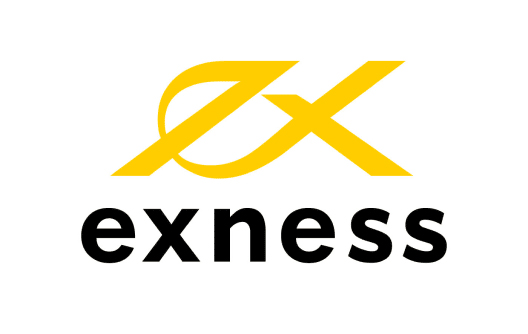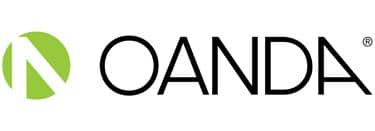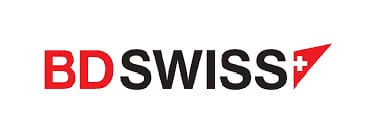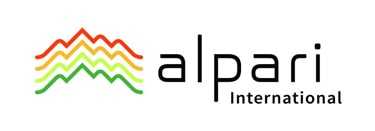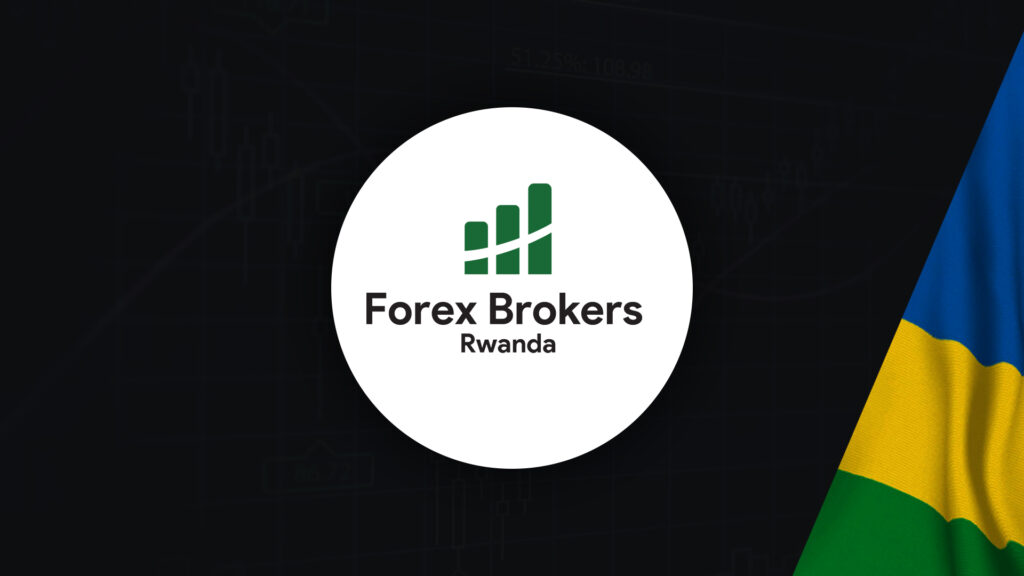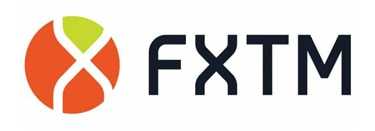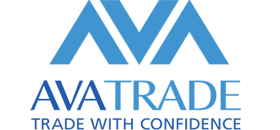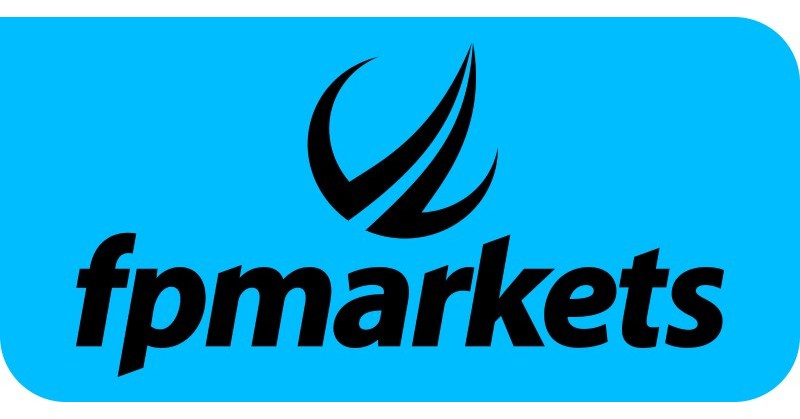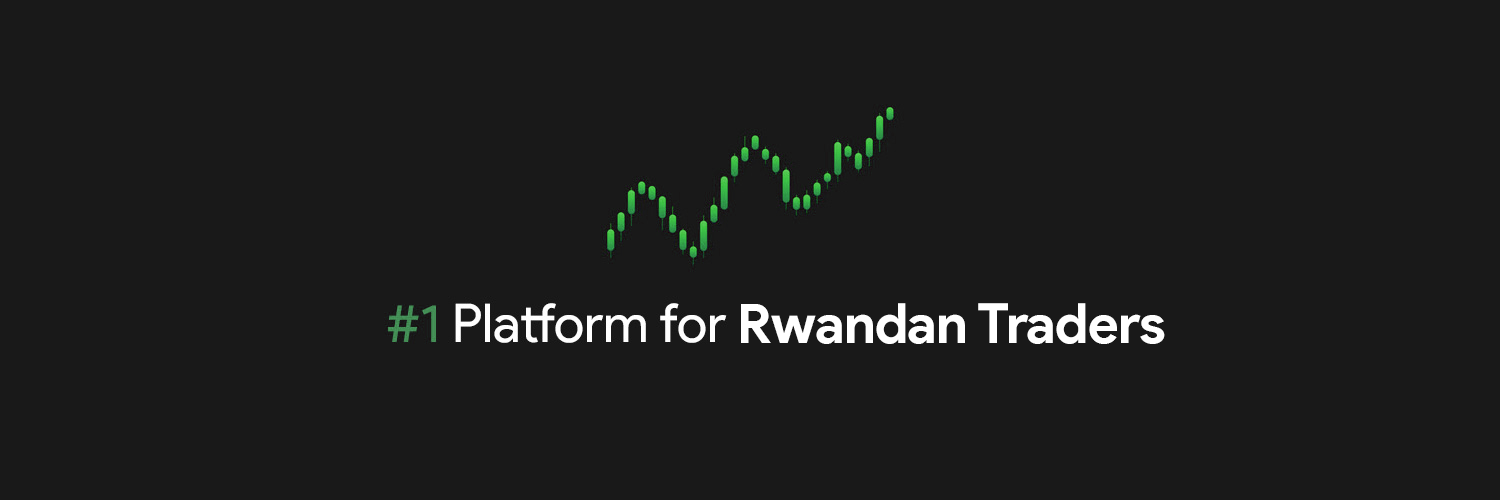
How to trade Bitcoin in Rwanda
How to Trade Bitcoin in Rwanda revealed. We tested and verified the best Bitcoin Brokers for Rwandan Traders.
This is a complete guide to trading Bitcoin in Rwanda.
In this in-depth guide you’ll learn:
- What is Bitcoin?
- How to trade Bitcoin and make a profit?
- How to invest in Bitcoin for beginners.
- Which Bitcoin trading apps are best for Rwandan traders?
- What are the Best Bitcoin Wallets for Rwanda?
And lots more…
So if you’re ready to go “all in” with the best Bitcoin Brokers in Rwanda…
Let’s dive right in…
10 Best Forex Brokers in South Africa for 2024
Rank
Broker
Review
Regulators
Min Deposit
Official Site
- Louis Schoeman
How to trade Bitcoin in Rwanda (Updated 2024)
- What is Bitcoin?
- How to Trade Bitcoin in Rwanda – Overview
- How to Trade Bitcoin in Rwanda through a Crypto Exchange Step-by-Step
- How to Trade Bitcoin in Rwanda using a Crypto CFD Broker
- How to Trade Bitcoin in Rwanda from a Bitcoin ATM
- Understanding how trading platforms work
- How does Bitcoin work, and how can Rwandans use Bitcoin?
What is Bitcoin?
Bitcoin is a digital currency that operates independently from a central authority such as a bank. Satoshi Nakamoto, the creator of Bitcoin, first pointed out the necessity for a cryptographically verifiable digital payment system rather than relying on blind trust.
Since all Bitcoin transactions are recorded in a publicly accessible ledger, it is impossible to undo or counterfeit them.
That was on purpose and integral to its distributed design. Bitcoin is not backed by any central authority or issuing body; its value is ensured by cryptographic proof stored inside the system’s architecture.
How to Trade Bitcoin in Rwanda- Overview

Learn about the factors that influence the price of Bitcoin
The typical factors influencing currencies, such as monetary policy instruments, inflation rates, and economic growth, do not apply to Bitcoin.
Central banks do not issue or control Bitcoin, nor is Bitcoin backed by a government. Therefore, such factors do not affect Bitcoin.
However, the following variables affect the price of Bitcoin since it functions more like a commodity being used to hold value:
- Bitcoin’s availability and the market’s demand
- The price of creating a Bitcoin via the mining method
- The number of cryptocurrencies in competition
- Regulations restricting its usage and sale
- News and media
Price and Demand of Bitcoin
The availability of an asset is a crucial factor in deciding its price. A rare item is more likely to command a high price, while a productive asset will command a low price.
Bitcoin’s supply is usually well-known, as a maximum of 21 million coins will be issued, and a fixed quantity made yearly. However, its system restricts the creation of new Bitcoin to a predetermined pace, which is supposed to decrease with time.
Consequently, Bitcoin’s future supply is diminishing, which increases demand. Bitcoin’s supply is comparable to a drop in corn supply if harvests were lowered every four years until there was no more corn to harvest. It was officially announced that this would occur, and corn prices would soar.
Bitcoin has drawn the interest of individual and institutional investors, with a spike in demand spurred by media coverage and “experts” and company owners praising Bitcoin’s current and future worth.
Bitcoin has also gained popularity in Venezuela and other nations with high inflation and depreciated currencies. Furthermore, it is popular among individuals who use it to move substantial quantities of money for illegitimate and unlawful purposes.
This popularity indicates that a combination of a decrease in future supply and an increase in demand has fuelled a price increase in Bitcoin.
However, its price continues to vary between times of boom and collapse. For instance, the 2017 Bitcoin price gain was followed by a protracted slump, then two rapid spiRWF and decreases until 2021.
The Production Costs
Like other commodities, production costs play a crucial role in determining the price of Bitcoin. Research suggests that the price of Bitcoin in cryptocurrency marketplaces strongly correlates with its marginal production cost.
The production cost of Bitcoin is equal to the total of two components: the direct fixed expenses for the infrastructure and power needed to mine the cryptocurrency and an indirect cost linked to the difficulty level of its algorithm.
Bitcoin mining consists of a group of computers (called “miners”) that compete to be the first to crack a secret number. The winner receives a portion of the newly created Bitcoin and the transaction fees accrued since the previous block was discovered.
Competing Crypto Assets
While Bitcoin is the most well-known cryptocurrency, hundreds of others compete for investment cash. As of 2024, Bitcoin leads cryptocurrency market transactions. However, its hegemony has diminished over time.
In 2017, Bitcoin accounted for over 80% of the market capitalization of all digital currency marketplaces. However, by 2024, this percentage had dropped below 50%. This drop was mostly due to greater knowledge and capabilities of alternative currencies.
As an illustration, Ethereum has emerged as a formidable rival to Bitcoin due to the proliferation of decentralized finance (DeFi).
Popularity has exploded for the many other cryptocurrencies that are constantly being launched. Tether, BNB, USD Coin, and Solana are a few more currencies that compete with Bitcoin for market share.
Regulations
Bitcoin was introduced in the wake of a monetary crisis prompted by the relaxation of derivatives market restrictions. Subsequently, Bitcoin is unregulated, and its borderless and regulation-free environment has earned a reputation.
The absence of regulatory status for Bitcoin has both advantages and disadvantages. Due to the lack of oversight, it is unrestricted for usage across borders. In addition, it is not subject to the same rules as other currencies.
Despite this, governments and other interested parties continue to advocate for cryptocurrency regulation.
Media and News
The media and news coverage influence the price of Bitcoin positively and negatively, keeping investors and interested parties informed. Furthermore, any modifications to the elements we have mentioned are promptly reported and communicated to the populace.
Consequently, positive news for cryptocurrency investors tends to increase Bitcoin’s price, while negative news tends to decrease it.
The mix of supply, demand, manufacturing costs, competition, regulatory changes, and subsequent media coverage impacts investor sentiment, one of the most significant elements influencing the price of cryptocurrencies.
Choose your strategy to trade Bitcoin
HODLing Bitcoin
The “HODL” Bitcoin strategy involves getting and keeping Bitcoin. Unfortunately, its name was a misspelling that appeared on a well-known Bitcoin website, and it has now come to symbolize “hold on for dear life.”
But do not take that phrase at its value; only acquire and maintain Bitcoin if you are positive about its long-term valuation.
Depending on your research and trading plan, you should terminate your positions to lock in a profit or reduce losses. Alternatively, you might employ stop losses to cancel your holdings automatically.
Trend Trading Bitcoin
Rwandans who trade trends must choose a position that is consistent with the current trend. When the market displays bullish patterns, it is customary to “go long,” and when negative trends are more prominent, to “go short.”
Consider selling your present position and purchasing into the new trend if the current trend abruptly reverses.
Hedging Bitcoin
By starting a position opposite their present one, Rwandans could quickly lower their Bitcoin risk. However, you would undoubtedly act this way if you believed the market would swing against you.
If you own some Bitcoin and are concerned that its value will soon decline, you could utilize CFDs to open a short position on the cryptocurrency.
Any gains from your short position may be used to offset any losses partly or entirely you suffer on your own coins if the market value of Bitcoin declines.
Day Trading Bitcoin
When trading Bitcoin day-to-day, you open a position and close it inside the same trading day, minimizing exposure to the market overnight.
Doing so might protect your position from accruing overnight financing expenses. However, if your objective is to profit from the daily swings in the price of Bitcoin, this approach could be the best choice.
Choose how you would like exposure to Bitcoin
Trade Bitcoin Derivatives
Trading Bitcoin derivatives with dependable CFD brokers like AvaTrade, Exness, HFM, and many more give Rwandans an effortless way to speculate on the price of Bitcoin without possessing any of the cryptocurrency themselves.
Subsequently, Rwandans are not trading the underlying asset. Therefore, they can “go long” if the Bitcoin price increases or “go short” if the price decreases.
Crypto Indexes
You could acquire exposure to 10 other major cryptocurrencies by trading the Crypto 10 Index, buying Bitcoin from an exchange, or exchanging it for other currencies.
This index is used to place wagers on the future value of certain digital assets.
Crypto Exchanges
People who use a Bitcoin strategy of “buy and hold” are the ones who are most likely to acquire Bitcoin via an exchange.
Rwandans do this because purchasing Bitcoin through an exchange gives the buyer legal title to the cryptocurrency, which can then be kept and traded to make a profit.
Decide on the position you want to take on Bitcoin
Rwandans can either go long or short on a position when they trade Bitcoin. Going “long” refers to buying BTC hoping its price will appreciate. In contrast, going “short” means you sell, expecting the price to decrease.
Learn how to place trades and read charts
Before you begin trading, you must confirm that trading cryptocurrencies are suitable for your present circumstances and that you have a thorough grasp of the risks involved.
In addition, you should grasp technical diagrams and comprehend how different order types function when used by Rwandans.
You might choose from various stop-loss and take-profit levels while trading cryptocurrencies on a platform or with a broker.
Open a Trade and Monitor its Progress
The basic tenets of Bitcoin trading are as follows: buy if you think the price of Bitcoin will rise and sell if you think it will fall. Of course, now that the transaction is done, you must watch the market closely to ensure it continues to perform as you expected.
Technical indicators made available on the trading interface of your exchange or broker should help you anticipate changes in Bitcoin’s price. Using indicators is an innovative idea if you want to keep an eye on things like market volatility or sentiment.
Close your position at the right time
You could close your transaction whenever you want to lock in a profit or cut a loss that has grown to an uncomfortable level.
If you incur losses, your total balance will fall directly. However, you will see your profits in your trading account immediately, so you may cash out or reinvest as you see fit for your trading style.
How to Trade Bitcoin in Rwanda through a Crypto Exchange Step-by-Step

LearChoose a suitable Exchange
Exchanges are a practical option for investors since they allow them to buy and sell cryptocurrencies and store and withdraw their holdings to and from a wallet, all in one place.
Numerous models of Bitcoin trading platforms exist now. Because of the decentralized nature of these markets and the lack of users’ need to provide personal information, several exchanges allow users to maintain their anonymity.
For certain people, such as those from countries without a developed credit or banking system, anonymous transactions may be a path into the mainstream economy.
The use of foreign currency is popular among many people in Rwanda. The most popular ones, however, are not decentralized and have regulations that users must follow by providing identity papers.
KraRWF, Gemini, FTX, and Binance are just a few markets where you could buy and sell Bitcoin and an ever-expanding selection of other cryptocurrencies.
Connect A Payment Method
Your job and financial information, as well as a government-issued picture ID (such as a driver’s license), could be verified at the time of exchange. The steps are like those required to create a regular brokerage account.
Using a debit or credit card, you can connect your bank account immediately on an exchange. For example, you can use a credit card to acquire Bitcoin. However, the price volatility of cryptocurrencies and the interest you will pay on the purchase might drive up the total cost.
Bitcoin is legal in Rwanda. However, deposits to crypto-related websites or exchanges could be subject to scrutiny or outright prohibition by the Capital Markets Authority of Rwanda.
Exchangers also charge transaction fees, and prices for depositing funds from a bank account, debit card, or credit card may vary widely.
Purchase Bitcoin
In many ways, cryptocurrency exchanges have become the functional equivalent of traditional stock brokerages. In addition, several order kinds and investing opportunities are available on cryptocurrency exchanges.
Market and limit orders are available on all cryptocurrency exchanges, while stop-loss orders are available on some. Rwandans, for instance, might use KraRWF to make orders such as market, limit, stop-loss, stop-limit, take-profit, and take-profit limit.
Store your Funds
Some safe places to save digital assets include Bitcoin wallets and cryptocurrency wallets. Holding Bitcoin in a cold storage wallet rather than an exchange wallet offers investors access to the private key.
While an exchange wallet exists, you should not use it to store more than a little bit of Bitcoin or for any extended period.
How to Trade Bitcoin in Rwanda using a Crypto CFD Broker

Cryptocurrency trading, and Bitcoin CFDs, have been “all the talk” among traders in recent years, and they will continue to be so in 2024.
Cryptocurrency prices are quoted relative to the US Dollar (USD) and the Euro (EUR), two of the most liquid currencies in the world. They are also being used as a reference point for Bitcoin’s price in contracts for difference (CFD) trading of cryptocurrencies.
Cryptocurrency contracts for difference (CFDs) let traders speculate on price movements by placing “Buy” or “Sell” orders, respectively.
Only you can decide when you believe the pricing discussion will reach a conclusion and what that conclusion will be. In contrast to options, CFD contracts do not expire.
Instead, they could be kept indefinitely as the price of the underlying asset rises in the expectation of profit.
CFDs allow traders to speculate on Bitcoin’s price fluctuation without buying any Bitcoin. Since there is a chance of making a profit from trading cryptocurrencies, this widens the pool of available assets.
Cryptocurrency CFD trading is an expensive option because of the spread, which is the difference between the buy and sale price. These spreads can be excessive, especially in the case of variable spreads that adjust according to the market conditions.
Create a CFD Trading Account with a Bitcoin Broker
By submitting an online application, Rwandan traders and investors can open an account with a CFD broker of their choice.
However, Rwandans must remember that most brokers require proof of identification and residence as part of AML procedures.
Deposit Funds into a Trading Account
Contributions to a CFD trading account can only be made in fiat currency utilizing a variety of payment mechanisms.
Rwandans who want to participate must deposit an account that reflects the name they used to register an account.
Finance Your Trading Account
There is a possibility that Forex and CFD firms that specialize in cryptocurrencies may only accept deposits and withdrawals in the form of fiat currency.
Subsequently, customers purchase on these websites using alternative bank wire transfers, credit and debit cards, and e-wallets such as PayPal, Skrill, and Neteller.
If the monies are to be credited to the account, the account’s owner must have their name on the funding source. Not only are payments managed by other parties prohibited, but so are they.
There is a limit amount that may be placed using each of the deposit methods that are offered.
Bank transfers often offer an unlimited capacity for deposits and withdrawals. However, traditional payment methods like credit cards and electronic wallets could be subject to limitations imposed by the CFD provider.
Start Trading Bitcoin
Once your CFD trading account is financed using one of the supported deposit methods, you can participate in two-way trading of digital asset CFDs.
If prices rise, you may profit by purchasing cheap and selling high; if they fall, you can profit by selling high and exiting the market when prices are at their lowest.
On the other hand, if the market prices move opposite to what you expect, you will be forced to liquidate your positions at a loss.
Use the future order option to purchase and sell when the instrument reaches a certain price or buy and sell at the current market price.
How to Trade Bitcoin in Rwanda from a Bitcoin ATM
Like physical Bitcoin exchanges, Bitcoin ATMs operate. Rwandans may use a machine to insert cash to purchase Bitcoin, which is then delivered to users’ online wallets.
In recent years, Bitcoin ATMs have gained popularity and are now accessible in Nairobi. For example, there is a Bitcoin ATM on the second floor of RWFrail Towers Ring Road Parklands.
However, there are two costs associated with buying Bitcoin via an ATM: the purchase price and the exchange charge for converting fiat currency to Bitcoin.
Understanding how trading platforms work
Online trading has enabled virtually anyone with internet access, the funds to open a trading account, and a somewhat positive past financial history to participate in the market. It is not necessary to have a personal broker or a large sum of money lying around to do it, and the majority of analysts believe that trading stock is no longer a sign of impending doom.
Although the market has become more accessible, this does not mean that you should take internet trading lightly.
Before you can engage in online stock trading, you must first select an online broker. Your online broker will handle trade execution and will keep track of your funds and shares in an account.
Furthermore, many businesses offer varying degrees of assistance, various types of accounts, and additional services. There are a few things to consider when looking for a broker, which are listed below.
How does Bitcoin work, and how can Rwandans use Bitcoin?

How Bitcoin Works
Bitcoin is based on a decentralized digital ledger known as a blockchain. A blockchain is a network of data blocks that carry information about each transaction, such as the date and time, total value, buyer and seller, and a unique identifier for each trade.
In chronological sequence, entries are connected to form a digital chain of blocks. Once a block is uploaded to the blockchain, it is available to anybody who wants to examine it, functioning as a public log of Bitcoin transactions.
Blockchain is decentralized, which implies that no one entity controls it. Nobody owns it, but anybody with a connection may add to it. It is sometimes referred to as a Google Doc that anyone could edit.
Additionally, when other users change it, your copy is likewise updated. So, although the notion that anybody may alter the blockchain might seem perilous, certain precautions make Bitcoin dependable and safe.
For a new block of transactions to be added to the Bitcoin blockchain, most Bitcoin holders must agree that it is valid. The encryption pattern used to determine which wallets and transactions belong to which users must match.
These codes are lengthy, random numbers, making their fraudulent production exceedingly difficult.
The amount of statistical unpredictability in blockchain verification codes, which are required for each transaction, significantly limits the possibility that anybody may conduct fraudulent Bitcoin transactions.
How Rwandans can use their Bitcoin
Rwandans could invest in Bitcoin as an alternative to equities and bonds, diversifying their portfolios. You may also make Bitcoin purchases; however, some businesses accept native cryptocurrency.
Microsoft, PayPal, and Whole Foods are just a handful of the major firms that take Bitcoin. You may also discover that some smaller local businesses and websites accept Bitcoin. First, however, you will need to do some research.
You could also utilize a service that connects a debit card to your cryptocurrency account, allowing you to use Bitcoin similarly to a credit card. In addition, this often entails a financial institution instantaneously turning your Bitcoin into dollars.
People in foreign nations, especially those with less stable currencies, occasionally utilize cryptocurrencies instead of their federal money.
Bitcoin enables individuals to hold value independent of a government-issued currency. It allows individuals to hedge against the worst-case situation.
The Best Bitcoin Brokers in Rwanda
In this article, we have listed the best Forex Platforms in Rwanda that offer trading platforms in Rwanda. We have further identified some forex brokers that offer additional services and solutions to Rwandan traders.
Best MetaTrader 4 / MT4 trading platform broker in Rwanda
Min Deposit
USD 10
Regulators
CBCS, CySEC, FCA, FSA, FSC, FSCA, CMA
Trading Desk
MetaTrader 4 and MetaTrader 5
Crypto
Yes
Total Pairs
107
Islamic Account
Yes
Trading Fees
Low
Account Activation Time
24 Hours
Overall, Exness is the best MetaTrader 4 / MT4 trading platform in Rwanda. Exness has offices in Cyprus, the United Kingdom, Seychelles, South Africa, the British Virgin Islands, and Curaçao.
Exness provides a number of benefits such as low commissions, instantaneous order execution, and the opportunity to withdraw money immediately via various instant withdrawal alternatives.
Best MetaTrader 5 / MT5 Forex Platform broker in Rwanda
Overall, HF Markets is the best MetaTrader 5 / MT5 trading platform in Rwanda. HF Markets was previously known as HotForex. It offers a variety of pricing alternatives and account types. HF Markets has competitive fees and spreads that average 0.1 for the EUR/USD currency pair.
Best Forex platform for beginners in Rwanda
Min Deposit
USD 100
Regulators
CySEC, FCA, FSA, FSCA, Labuan FSA
Trading Desk
Meta Trader 4
Crypto
Yes
Total Pairs
62
Islamic Account
Yes
Trading Fees
Low
Account Activation Time
24 Hours
Overall, Tickmill is the best trading platform for beginners in Rwanda. Tickmill is a reputable and trustworthy forex and CFD broker. Tickmill is regulated by top-tier regulators like FSCA (South Africa), FCA (UK), and CySEC.
Tickmill offers instant Internet banking deposit methods and quick bank transfer withdrawals.
Best Minimum Deposit Forex platform in Rwanda
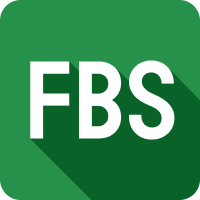
Overall Rating
- 4.7/5
Min Deposit
1 USD / 1 020 RWF
Regulators
IFSC, FSCA (South africa), ASIC, CySEC
Trading Desk
MetaTrader 4, MetaTrader 5, FBS Trader – all in one mobile trading platform.
Crypto
Yes
Total Pairs
250
Islamic Account
No
Trading Fees
Low
Welcome Bonus
$140 / 142 877 RWF
Account Activation Time
Instant
Overall, FBS is the best trading platform for the lowest minimum deposit in Rwanda. FBS is in operation since 2009 and has evolved to become a large, reputable international forex and CFD broker. FBS offers competitive trading conditions, a range of accounts, advanced trading tools, and several other advantages to Rwandan traders.
Best ECN Forex platform in Rwanda
Min Deposit
USD 0
Regulators
ASIC, BVI, CFTC, FCA, FFAJ, FSC, IIROC, MAS, NFA
Trading Desk
Metatrader 4 and Metatrader 5
Crypto
Yes
Total Pairs
45
Islamic Account
No
Trading Fees
Low
Account Activation Time
24 Hours
Overall, Oanda is the best ECN platform in Rwanda. Oanda gives customers access to a variety of financial products for seasoned investors.
Oanda offers quick and reliable transaction execution. Oanda’s research resources are superior to industry standards. Its user interfaces are easy to understand and it has a good track record of regulatory oversight.
Best Islamic / Swap-Free Forex platform in Rwanda
Min Deposit
$100
Regulators
CySec, FSC, FSA, BaFin, NFA
Trading Desk
MetaTrader 4 , MetaTrader 5
Crypto
Yes
Total Pairs
50 Forex Pairs and 20 Crypto Pairs
Islamic Account
Yes
Trading Fees
Low
Account Activation Time
24 Hours
Overall, BD Swiss is the best Islamic Forex Broker in Rwanda. BD Swiss is a well-regulated and reputable broker with a large international clientele. BD Swiss offers a wide range of products for trading. BD Swiss also offers trading in many cryptocurrencies.
Best trading platform Forex Trading App in Rwanda
Min Deposit
USD 5
Regulators
FCA UK
Trading Platform
MT5, MT4, OctaTrader
Crypto
Yes
Total Pairs
28
Islamic Account
Yes
Trading Fees
Low
Account Activation Time
24 Hours
Overall, OctaFX has the best forex trading app for traders in Rwanda. OctaFX operates from Saint Vincent and the Grenadines. OctaFX serves traders from all over the world, including those in African countries like Rwanda.
Rwandan traders can trade forex currency pairs, Index CFDs, commodities, and cryptocurrencies with OctaFX’s award-winning services from investors around the world.
Best Lowest Spread Forex platform in Rwanda
Min Deposit
USD 100
Regulators
FSC
Trading Desk
MetaTrader 4
Crypto
Yes
Total Pairs
48
Islamic Account
Yes
Trading Fees
Low
Account Activation Time
24 Hours
Overall, Alpari is the best Low spread Forex platform in Rwanda. Alpari is trustworthy and reliable as a market maker broker. Alpari is regarded as a broker with a low level of risk. Trading speeds are guaranteed to be swift. More than 2 million customers are enrolled with Alpari.
Best Nasdaq 100 Forex platform in Rwanda
Min Deposit
USD 10
Regulators
CySec, FSCA
Trading Desk
MetaTrader 4 and MetaTrader 5
Crypto
Yes
Total Pairs
–
Islamic Account
No
Trading Fees
Low
Account Activation Time
24 Hours
Overall, FXTM is the best Nasdaq 100 forex platform in Rwanda. FXTM aims to provide the best trading conditions for traders of all levels. For the safety and security of their clients’ cash, they keep such funds in segregated accounts.
The broker is ideal for active trading and investment opportunities for traders of all skill levels.
Best Volatility 75 / VIX 75 Forex platform in Rwanda
Min Deposit
USD 100
Regulators
ASIC, FSA
Trading Desk
MetaTrader 4, MetaTrader 5, Ava Social, Ava Protect, Trading Central
Crypto
Yes
Total Pairs
55+
Islamic Account
Yes
Trading Fees
Low
Account Activation Time
24 Hours
Overall, AvaTrade is the best Volatility 75 / VIX 75 Forex Platform in Rwanda. AvaTrade is trustworthy and well-regulated. AvaTrade offers a single live trading account but traders have the choice to trade with either a Retail trading account or a Professional trading account.
Best NDD Forex platform in Rwanda
Min Deposit
USD 10
Regulators
IFSC, CySec, ASIC
Trading Desk
Meta Trader 4
Crypto
Yes
Total Pairs
55
Islamic Account
No
Trading Fees
Low
Account Activation Time
24 Hours
Overall, XM is the best NDD forex platform in Rwanda. XM is regulated by strict financial regulators in all relevant jurisdictions. XM offers a balanced mix of all the features that users value: security, support, ease of account funding, and withdrawal. XM charges low fees.
Best STP Forex platform in Rwanda
Min Deposit
200 USD / 21 7071 RWF
Regulators
ASIC, BaFin, CMA, CySEC, DFSA, FCA, SCB
Trading Desk
MetaTrader 4, MetaTrader 5, cTrader and TradeView
Crypto
Yes (Not available in Africa)
Total Pairs
60+
Islamic Account
No
Trading Fees
Low
Account Activation Time
24 Hours
Overall, Pepperstone is the best STP Forex platform in Rwanda. Pepperstone gives traders across the world access to all markets backed up by very good customer care. Pepperstone also offers modern technology, low spreads, and high-speed execution.
Best sign-up bonus trading platform in Rwanda
Min Deposit
100 USD/101 652 RWF
Regulators
ASIC, CySEC, FSCA, CMA
Trading Desk
MetaTrader 4, MetaTrader 5
Crypto
Yes
Total Pairs
63
Islamic Account
Yes
Trading Fees
Low
Account Activation Time
24 Hours
Overall, FP Markets is the best Sign Up bonus trading platform in Rwanda. FP Markets offers stocks, indices, foreign exchange (forex), commodities, and cryptocurrencies to trade. FP Markets has a user-friendly mobile app and a variety of account types to choose from.
You might also like: Best Crypto Day Trading Platforms
You might also like: Best Crypto Brokers for Beginners
You might also like: Best Forex Brokers
You might also like: Best Growth Stocks to Buy Now
You might also like: Best Cryptocurrency Brokers
FAQ
How can I start trading Bitcoin in Rwanda?
To start trading Bitcoin in Rwanda, you will need to create an account on a reputable cryptocurrency exchange such as Binance, Paxful, or LocalBitcoins. After verifying your account, you can deposit funds and use them to purchase Bitcoin.
What are the most popular payment methods for trading Bitcoin in Rwanda?
The most popular payment methods for trading Bitcoin in Rwanda are mobile money transfer services such as M-Pesa, Airtel Money, and T-Kash. Some exchanges also accept bank transfers and credit or debit card payments.
What are the risks involved in trading Bitcoin in Rwanda?
Trading Bitcoin in Rwanda, or any cryptocurrency, involves a high level of risk due to the volatility of the markets. It is important to understand that the value of Bitcoin can fluctuate rapidly and that there is a risk of losing your investment.
How can I secure my Bitcoin trades in Rwanda?
To secure your Bitcoin trades in Rwanda, it is important to choose a reputable exchange that offers robust security measures, such as two-factor authentication and secure storage. It is also recommended to store your Bitcoin in a hardware wallet for added security and to regularly monitor your trades and account security.
What are the Best Bitcoin Wallets for Rwanda?
Mobile. ZenGo is an easy iOS & Android crypto and NFT wallet.
Hardware. Ledger Nano S Plus is a secure hardware wallet that connects to your computer via USB-C.
Desktop. Electrum is a popular desktop Bitcoin wallet that is compatible with Windows, Mac, and Linux.
Table of Contents






